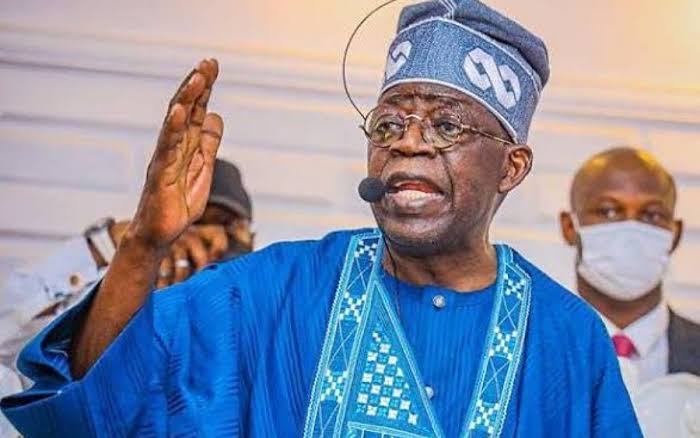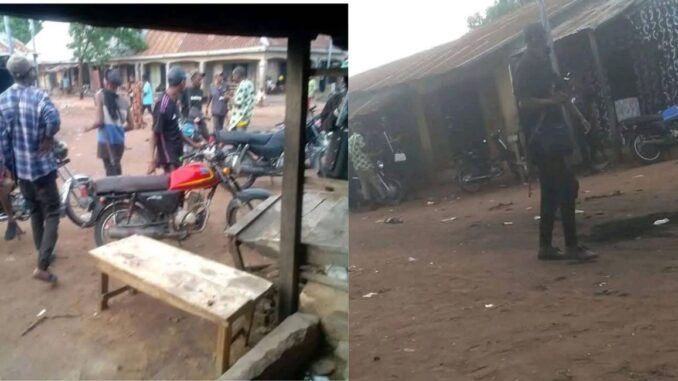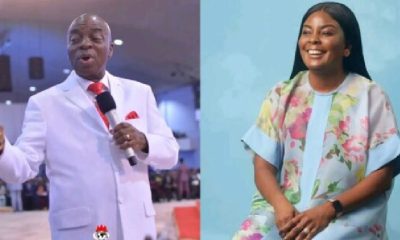News
How Nationwide Protests Forced Us To Listen To Nigerians – Says Tinubu

By Kayode Sanni-Arewa
Senator Abubakar Bagudu, the Minister of Budget and Economic Planning, has stated that the recent nationwide #EndBadGovernance protests compelled the federal government to heed Nigerians’ demands.
Speaking at the ‘’Nigerian Economic Summit Group National Economic Dialogue on Nigeria’s Economic Future: 25 Years of Democracy and Beyond,” Bagudu attributed the country’s current issues to previous administrations but noted President Bola Tinubu’s refusal to assign blame.
While noting that efforts were in progress to improve the country’s fortunes, Bagudu said: “We have learnt that even the current protests have made us listen more. Whatever we are doing, we have taken the message that we need to do more, we need to do better, and we need to do it in a hurry.”
Speaking further, the minister said: “President Bola Tinubu has been very reluctant to reflect on the past and blame anybody, but the net effect is that despite efforts by previous administrations, especially in the last 25 years, we are not where we want to be.
“So, what do we do? It’s not because of anyone’s failing, but that is our reality. We have yet to achieve the income per capita that we require, and it’s not for lack of trying; it’s not for lack of successes. With the transformation in the telecommunication sector, at some point, we even reversed our gross domestic product, GDP.
‘’Our population has grown from 119 million in 1999 to about 230 million, almost double. Still, our oil production, for example, 2.2 million barrels in 1999, is now rather than 4 million, according to the doubling of our population, which is still under 1.5 million, reflecting cumulative years of under-investment in the sector.
“So, our reality is that we are not where we want to be, and our constitution needs to be more transparent about what we should do. Chapter 2 of our Constitution, the Fundamental Objectives and Directive Principles of State Policy, clearly discusses the country’s political objectives. It is also very clear about the economic objectives—what kind of economy we want to run.
“Chapter two of the Constitution spells out citizens’ duties. The chapter opens by saying that all persons in authority, legislative, executive, and judicial, at all levels of government, have the primary mandate to ensure the achievement of those fundamental objectives in Chapter 2.
“So, the constitution—maybe we can interrogate it and make it better—provides a starting point. Agenda 2050 reflects those objectives. We want a nation that includes all. We want a higher per capita by the year 2050. We want to ensure that we invest not less than $100 billion annually.
‘’But if our experience in the last 25 years should serve us as a guide, we sometimes know how difficult it is because you have to make choices that are both pleasant and unpleasant to be able to mobilise capital, private and borrowed, to support our aspiration.”
News
Reps Tackle CBN, OAGF Over Missing Grants, Bailout Funds

According to him, such financial mishandling not only disrupts critical public services and projects but also results in major losses to the nation’s purse—resources that could have been channelled into crucial services and developmental efforts, as laid out in Section 14(2)(b) of the Constitution.
Speaker Abbas, thereafter setup a Special Committee to be chaired by Rep. Chinedu Martins to immediately launch a probe into the “Utilisation of take-off grants, bailout funds, and interventions allocated to MDAs, government institutions, and GOEs from 2015 to present.”
News
Abuja light rail project must be commissioned on May 29-Wike vows

The FCT Minister, Mr. Nyesom Wike, expressed satisfaction with the progress on the Abuja light rail project, reaffirming its May 29 delivery as sacrosanct.
He made these assurances after inspecting the ongoing construction of access roads to the train stations on Wednesday, from Metro Train Station in the Central Area to Nnamdi Azikiwe International Airport, Abuja.
Reassuring journalists accompanying him, the minister reiterated that President Bola Tinubu would commission the rail project on May 29 to mark his second year in office.
The visited stations were Wupa station near Idu and Bassanjiwa station near the airport.
“This is part of our routine inspection of ongoing projects to see the contractors’ progress,” Wike explained.
“We are working day and night to fulfill our promise to President Tinubu and FCT residents. By May, Mr. President will ride on the Metro line.”
News
Just in: Alleged Herdsmen Armed With AK-47 Rifles Take Over Communities In Benue State

Gunmen suspected to be Fulani herdsmen are currently invading some communities in the Ukum Local Government Area of Benue State.
According to sources, the herdsmen armed with AK-47 rifles stormed the community around 04:15pm on Thursday.
“Our lives are in danger this evening, armed Fulani herdsmen, about 600 in numbers have taken over our communities this evening,” a resident told SaharaReporters.
“They’re currently moving around towns in Ukum Local Government Area of Benue state. No security personnel at all, Governor Alia didn’t send security, they said operation will start soon once they (herders) have observed the place.”
The insecurity situation in Benue has been alarming in recent weeks with attacks from gunmen suspected to be herdsmen.
The media had reported that suspected herdsmen again unleashed terror in Benue State, attacking three communities in Otukpo Local Government Area (LGA) on Wednesday, just a day after 11 people were killed in a deadly raid on Otobi community.
The latest victims of the escalating violence were Emichi, Odudaje, and Okpamaju, communities that had previously suffered an attack in February, which left five people dead.
However, the renewed attack has created fear and mass displacement among residents, with women and children fleeing to safety.
Local sources say the death toll from the fresh attack remains unclear, but several casualties are feared.
-

 News11 hours ago
News11 hours agoBREAKING: Unknown gunmen reportedly storm Senator Natasha’s family residence
-

 News14 hours ago
News14 hours agoSnub story on removal of Rivers Sole Administrator, it’s FAKE-Chief Registrar
-

 News20 hours ago
News20 hours ago“How my father escaped assassination” – Bishop Oyedepo’s daughter
-

 News20 hours ago
News20 hours agoFG expresses sympathy for CBEX victims, urges a united effort to combat Ponzi schemes
-

 News13 hours ago
News13 hours agoSAD! Again, Alleged Herdsmen Attack Three Benue Communities
-

 News6 hours ago
News6 hours agoAbuja light rail project must be commissioned on May 29-Wike vows
-

 Politics13 hours ago
Politics13 hours agoPDP govs are jokers, can’t stop coalition train, Atiku boasts
-

 News11 hours ago
News11 hours agoLawmaker Slams NBA Over Rivers Crisis, Demands Return of N300m





